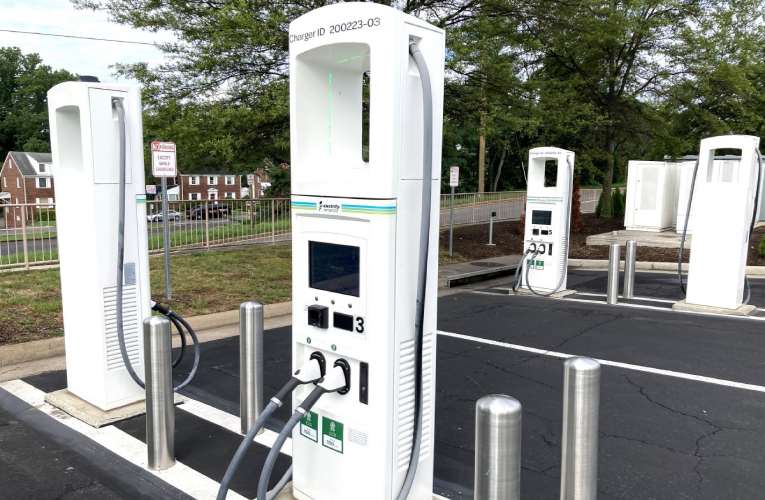
The European Union (EU) is also looking forward to augmenting the speed of EV adoption by strictly restricting sales of new traditional IC vehicles from 2035
A lot of western and Chinese car-makers making their way in the Shanghai Auto Show are now occupied to impress the consumers by unleashing their top-notch technologies and car models, mostly electric cars. The event was called off last year due to China’s strict restrictions and lockdowns to curb coronavirus infection. Chinese car-makers such as Nio, BYD, and Geely will showcase a range of EVs during the event by which they are looking forward to solidifying their positions in the international market of electric cars.
With enormous assistance from the government all over the world, EVs have gained traction all over the world amid the concerns over climate change. Now, in the US, the Joe Biden government is implementing new rules to reduce pollution from vehicles that requires more than two-thirds of vehicles sold in the country to be completely electric by the end of 2032, claims expert.
In the meantime, the European Union (EU) is also looking forward to augmenting the speed of EV adoption by strictly restricting sales of new traditional IC vehicles from 2035. According to Reuter’s survey report, the top global car manufacturers are aiming to invest around $1.2 trillion (€1.08 trillion) in EVs and batteries from 2030. Also, the International Energy Agency on the other hand, stated that sales of battery-backed vehicles would increase to 60 percent by 2030 from 10 percent in 2021. Battery is regarded as one of the most costliest components of EVs, which accounts for 30-40 percent of the overall price.
BloombergNEF mentioned that China still holds the largest market share of EV battery production, which is around 75 percent of the international manufacturing capacity. In the EV supply chain, mining, refining, and final assembly is also dominated by China.
Gregor Sebastian, a researcher on China’s industrial policy at the Berlin-based Mercator Institute for China Studies (MERICS) told Indian Express, "Beijing has signaled early on that electric vehicles will be a strategic national priority, inducing Chinese firms to invest in mining, raw material refining and battery technologies. As China is by far the world’s biggest car market this is a huge incentive for Chinese firms to enter the sector. In addition, China’s strong manufacturing base and efficient logistical system have allowed firms to quickly scale up production."
For the battery requirements, even the global giants like GM and Tesla are completely dependent of China’s leading battery manufacturer Contemporary Amperex Technology Co., (CATL). In fact, Ford has recently proclaimed its association with CATL’s lithium-iron-phosphate technology for its utilization in a new battery plant in Michigan. US Senator Marco Rubio stated that with the help of the Inflation Reduction Act, the current US government is undertaking efforts to wipe out Chinese battery firms out of the US manufacturing supply chains for vehicles manufactured in North America.
The EU on the other hand has been trying hard to solidify its position in the global EV market for years. For instance in 2017, European Battery Alliance commenced to begin in-house production. The aim was to assist the European suppliers to meet 90 percent of the region’s battery requirements by the end of 2030. Scale is one of the important things that the EU battery sector lacks, added Sebastian. The region faces the challenge to improve the gap from initial development to extensive commercialization. “In certain parts of the value chain, like the refining of raw materials, Europe is almost entirely dependent on East Asian firms.”
Volkswagen is also aiming to invest in mines to perk-up raw materials for battery production and as part of the $199.8 billion five year investment plan, the car-maker Volkswagen has spent around €15 billion for its three major battery plants and a slew of raw material sourcing. This is according to the report of the Indian Express.

